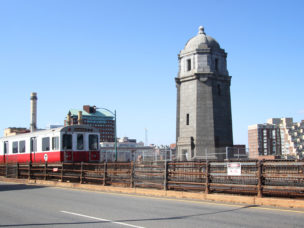Stay in the know
Subscribe to the Real Estate Blog and we’ll send you an email each time something new is posted.
Subscribe to the Real Estate Blog and we’ll send you an email each time something new is posted.
Blogs
Real Estate Blog
Gaming in Massachusetts: What are the stakes to play in the new regulatory system?
On November 22, 2011, Governor Deval Patrick signed into law An Act Establishing Expanded Gaming in the Commonwealth (the “Act”), and Massachusetts officially opened its doors to casino gaming. The Act allows for the development of one slot parlor and up to three resort style casinos, each to be located in a different region of the state. One casino will be permitted in the more urbanized eastern and central part of the state, which includes the greater Boston area (referred to in the Act as Region A); one casino will be permitted in the southeastern part of the state, including the cape and islands, where a tribal casino is anticipated (Region B); and one casino will be permitted in the more rural western part of the state (Region C).
The Act created the Massachusetts Gaming Commission, comprised of five commissioners, three of whom were appointed directly by each of the Governor, Attorney General and Treasurer, and two of whom were jointly appointed by the Governor, Attorney General and Treasurer. The Commission, fully formed at the end of March, has the exclusive authority to grant licenses for the operation of the one slot parlor and three casinos. The Chairman of the Commission, Stephen Crosby, has commented that it could take nine months to a year before the Commission has had an opportunity to meet, fully study the Act, and issue its Requests for Proposals. Gaming developers will then have a three to six months to submit proposals for a slot parlor or resort casino. With this timeline in mind, Mr. Crosby stated that the Commission may not issue any licenses to allow ground breaking before 2014.
Meanwhile, a federally recognized Indian tribe, such as the Mashpee Wampanoag Tribe mentioned in the local press, will have an exclusive period from now until July 31, 2012 to negotiate a compact with the Governor for the one license in the southeastern region. If such an agreement is not reached, the Commission then has a short window until October 31, 2012 to solicit bids from private developers for the southeastern region. The tribe will not be given a chance to add a fourth casino at a later date. These deadlines, like others specified in the Act, may need to be extended by legislative amendment if the Commission has difficulty in acting within the prescribed timelines.
The Act requires any developer seeking a casino license to demonstrate that it is prepared to make at least a $500 million capital investment, and to provide plans that incorporate a gaming area and at least one hotel. The Chairman of the Commission expects to see individual proposals in the neighborhood of $1 billion in total capital investment. The Chairman publicly remarked that the Act does not guarantee three resort casino licenses will be granted, but rather “up to three”, and he has indicated that the Commission could choose not to issue any license in a region where none of the proposals meet the criteria established by the Act, or fail to provide a sufficient benefit to the Commonwealth and host community.
The Act also provides that casino developers pass a community-wide referendum in any proposed host town. Any developer must win a majority of the vote in such referendum before it bring its proposal to the Gaming Commission. The developer must then present its proposal to the Commission and pay a $400,000 non-refundable application fee. The Commission Chairman has indicated publicly that the vetting and review process could take up to a year to complete. Each proposal will require backing of at least three of the Commissioners. If a proposal is approved, the developer must make a refundable deposit of 10% of the total proposed investment in the project to be held in escrow until the final construction phase in order to ensure that the project is completed. Construction must be completed within one year, or a developer will risk losing their 10% deposit for failure to complete their project in a timely manner.
When they become fully operational, casinos will be required to pay to the Commonwealth 25 % of gross gaming revenue and the slot parlor will be required to pay 40% of gross gaming revenue, in addition to other taxes and fees assessed that will be shared by the host town and the Commonwealth.
While it is unlikely any bets will actually be placed at a new resort casino or slot parlor before 2016, any potential lender, investor or developer of a slot parlor or resort casino in Massachusetts, and any community interested in hosting a resort casino, would be well advised to consult soon with legal counsel, and throughout all stages of the permits and approvals process, as the Massachusetts regulatory landscape for gaming is complex and rapidly evolving, with a number of near term deadlines and strict requirements at play.



